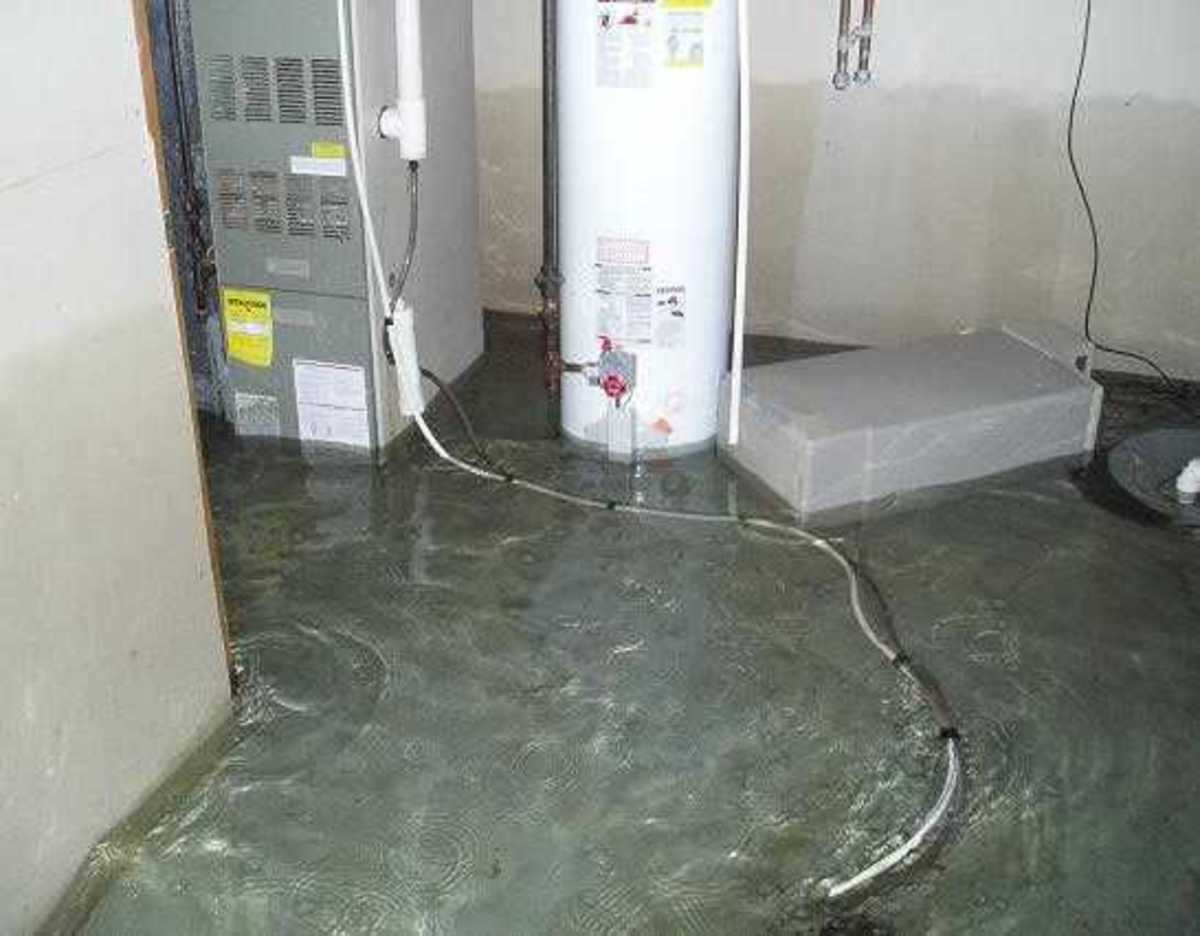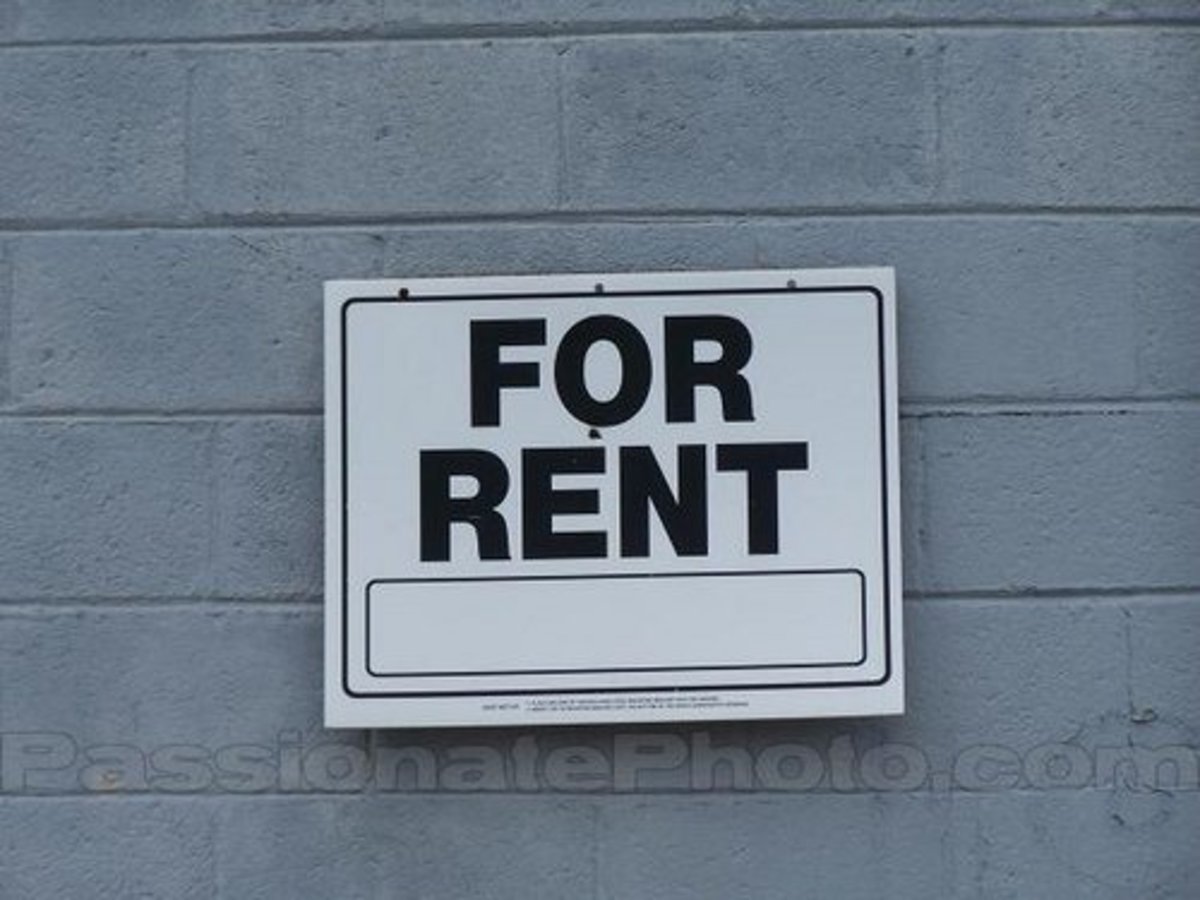Why Some Landlords Keep Their Apartments Vacant on Purpose
There Are No Winners
When a homeowner takes a vacant apartment off the market, the homeowner loses income. The unit is not vacant due to needed repairs. The homeowner has chosen to keep the apartment vacant. He does so because he is adamant that he no longer wants the mental, financial, and physical problems that occur with tenants.
A potential tenant is denied the opportunity to move into a new home. Both parties suffer a loss.
This article explains how and why this situation occurs.

Homeowners Tell Their Stories
Barbara is a single, retired homeowner with a two-family house. She lives in one apartment and has kept her other one vacant since 2007. She never intends to rent it out again.
She says she used to rent it out, but always had trouble with the tenant. On one occasion, she rented the apartment to the friend of a close friend of hers. The family was moving to the Boston area and needed a place to stay when they arrived. Barbara agreed to rent her unit at $1,200 month for a large six-room apartment. The average rent at that time for a two-bedroom apartment in Boston was over $1,500 per month. The family arrived the very next day.
Barbara says it was the worst decision that she ever made. After paying the first month’s rent, they never paid the rent on time. They always asked her to make damage repairs. When she asked for the rent she says, “They always looked at me like I was crazy.”
Another Experience
Barbara is not the only homeowner who refuses to rent out her vacant apartment. Another homeowner has left her apartment empty for 10 years because she got tired of being burnt by tenants. She says the amount of damage and aggravation she experienced by irresponsible tenants was not worth renting it out.
Warehousing an Apartment
Many homeowners who can afford to do it warehouse their units. Warehousing is a homeowner or corporation that deliberately fails to re-rent a vacancy. Some real estate investors purchase a building and keep it vacant in order to have vacant units to convert the property to cooperatives or condominiums.
There Are Many Vacancies Out There
In any given city, a vacancy shortage may not actually exist. There are probably hundreds of vacant apartments. In 2022, Microsoft reported there were 40,000 rent-stabilized vacant units in New York City
Unpaid or Late Rent Payments – The owner needs the rent on time every month and in full in order to help pay the mortgage and building expenses. When a tenant regularly pays the rent late or not at all, it disrupts the homeowner's personal money and credit rating. Taking legal action every month in anticipation of an eviction is time consuming and a drain on personal income. If the tenant is having financial problems, so are you.
Illegal Drugs and Excessive Traffic - A homeowner with a tenant involved with illegal drugs is a big problem. The loss of rent, the documentation of the problem, the calls to police and the excessive traffic all contribute to aggravate the homeowner.
If the homeowner lives in the same building, a tenant drug problem is dangerous to family and friends. A building involved with illegal drugs gives the property a bad reputation. Neighbors will confront a homeowner about the criminal element on the street and will often demand immediate action.
Homeowners spend hundreds, if not thousands of dollars evicting a bad tenant. They suffer the expenses of lost rent arrears, current rent losses, fixing up the apartment again, and re-renting the unit. If the homeowner has done this at least twice in the lifetime of owning a property, it’s easy to see why he or she would be reluctant to rent it out ever again.
Legal Expenses – The owner has to send the tenant an eviction notice every month because the rent is consistently late. Paying an attorney to do a formal eviction could run into a good amount of money. A really bad eviction could cost thousands of dollars on lost rent, legal fees, and other costs to remove the tenant. It wipes out the owner’s savings. An apartment stays empty because the owner is too afraid that another bad tenant will further sap their finances.
Maintenance Expenses – Owning a residential property has on-going maintenance demands. Maintenance expenses can be exacerbated by tenants who abuse the property. If evicted, tenants have been known to tear up the apartment before they are forced to leave. Here is a short list of maintenance expenses that a bad tenant could cause:
- Keep the front entry door unlocked or broken
- Broken or missing window screens
- Numerous and various toilet expenses, i.e. overflows, toys, diapers, etc.
- Excessive use of heat or water, both included in the rent
- Holes in the wall by children or other parties
- A stove ruined by excessive grease and lack of cleaning
- Pest infestation from the tenant’s lack of cleaning
The Lack of Privacy - If the owner lives in the same building as the tenant, he or she gives up some level of privacy. Barbara the Homeowner says that since she stopped renting her vacant apartment, she enjoys being the only person in her two-family house. It’s quiet, and she doesn’t have to worry about security issues.
Once the unit was empty, the owner discovered that privacy and peace of mind was restored. If the owner can afford it, the decision to leave an apartment empty is an easy one.
General Aggravation – A landlord gets to hear every excuse in the world as to why the rent will be late. The owner has had so many negative encounters with one tenant after another that he or she just says, “I’m done. I’d rather leave the apartment empty than deal with the aggravation”.
Due to the above and other reasons, the United States could use those vacant units. Microsoft reports that in 2022, the vacancy rate was 5.74 percent.
Recommended Reading

More Articles By Carolyn2008
- How to Remove and Store Your Evicted Tenants' Belongings
Your responsibilities to your tenant do not end with serving them with the eviction notice. You may have to remove their belongings if they don't leave on their own. There are laws that govern what to do with your tenant's belongings, where to put th - Why a Rent Collection Eviction is Important
Landlords are far too hesitant to ask for their rent when it is late. The road to bankruptcy or foreclosure is often led by a homeowner who resists collecting the rent. Here is why collecting the tenant's rent is important, even if it's during a holi - Good Communication with Your Tenant is a Key to Success
Communicating with the tenant is critical to the tenant/landlord relationship. Both parties must understand and respect the other. When there is a problem because the tenant does not follow the lease, take the time to discuss the situation. It is imp - Pre-Screen a Rental Applicant Before You Give Out the Keys
If you want a stable, long-term tenant in your real estate investment, you must take the time and money to screen rental applicants. Screening candidates is critical before he or she signs he lease. Pay the necessary business expenses of verifying an
This content is accurate and true to the best of the author’s knowledge and is not meant to substitute for formal and individualized advice from a qualified professional.
© 2012 Carolyn Gibson









